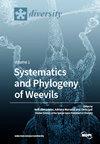蜜蜂物种和蜂产品中的微生物多样性:假单胞菌对蜜蜂健康的贡献和蜜蜂产品的生物活性:叙述综述
IF 2.1
3区 生物学
Q2 BIODIVERSITY CONSERVATION
引用次数: 0
摘要
蜜蜂是世界范围内重要的传粉媒介,促进了农业和自然生态系统的可持续性。此外,蜜蜂生产各种各样的蜜蜂产品(蜂巢产品)。蜂蜜是主要的食用蜂产品。如今,食用花粉、蜜蜂面包、蜂王浆和蜂胶越来越受欢迎。所有这些产品都具有很高的营养价值和/或生物活性。据报道,在蜜蜂和蜂窝产品中存在高度的微生物多样性,形成了独特的微生物群落。蜜蜂肠道微生物群积极促进宿主的健康和营养利用率。此外,它可以防止食物变质,并有助于保持蜂箱中的良好卫生条件。假单胞菌在蜜蜂和蜂产品微生物组的研究中经常被报道。不同种类的假单胞菌表现出高度的代谢适应性,产生广泛的生物活性酶和次生代谢产物。一些研究已经提供了证据,证明假单胞菌可能在蜜蜂的健康和蜜蜂产品的生物活性中发挥作用,尽管需要进一步的研究来充分了解其影响和机制。这篇叙述性综述的目的是强调假单胞菌在关于蜜蜂和蜂产品微生物组的最新知识背景下的重要性。本文章由计算机程序翻译,如有差异,请以英文原文为准。
Microbial Diversity in Bee Species and Bee Products: Pseudomonads’ Contribution to Bee Well-Being and the Biological Activity Exerted by Honey Bee Products: A Narrative Review
Bees are important pollinators worldwide, promoting sustainability in agriculture and natural ecosystems. Moreover, honey bees produce a variety of honey bee products (beehive products). Honey is the main edible bee product. The consumption of pollen, bee bread, royal jelly, and propolis is becoming more popular nowadays. All these products are characterized by high nutritional value and/or bioactivity. A high microbial diversity has been reported in bees and beehive products, forming distinct microbial communities. The honey bee gut microbiome actively promotes good health and nutrient availability for the host. Furthermore, it prevents food spoilage and contributes to the maintenance of good hygiene conditions in the hive. Pseudomonads are often reported in investigations on bee and bee product microbiomes. Diverse Pseudomonas species demonstrate high metabolic adaptability, producing a wide range of bioactive enzymes and secondary metabolites. Several studies have provided evidence that Pseudomonads might play a role in bee well-being and the bioactivity exerted by honey bee products, though further research is warranted to fully understand the effects and mechanisms. The aim of this narrative review is to highlight the importance of Pseudomonads in the context of up-to-date knowledge regarding the bee and bee product microbiomes.
求助全文
通过发布文献求助,成功后即可免费获取论文全文。
去求助
来源期刊

Diversity-Basel
Environmental Science-Ecological Modeling
CiteScore
3.40
自引率
12.50%
发文量
925
审稿时长
11 weeks
期刊介绍:
Diversity (ISSN 1424-2818) is an international and interdisciplinary journal of science concerning diversity concept and application, diversity assessment and diversity preservation. It is focused on organismic and molecular diversity. It publishes reviews, regular research papers and short notes in the regular issues. Related news and announcements are also published. Our aim is to encourage scientists to publish their experimental and theoretical results in as much detail as possible. Therefore, there is no restriction on the length of the papers. Full experimental details must be provided so that the results can be reproduced.
 求助内容:
求助内容: 应助结果提醒方式:
应助结果提醒方式:


